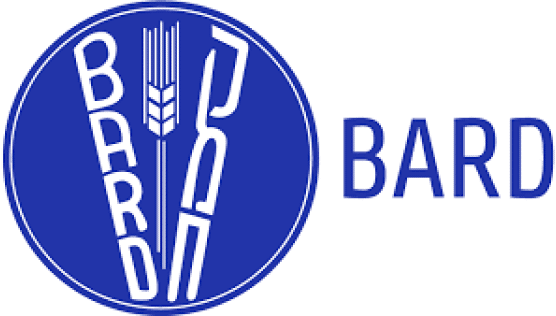What got you interested in stress response in plants?
My Ph.D. research was focused on the growth-promoting hormone gibberellin (GA) in tomato, its sensing mechanism (receptors), and how it affects drought tolerance. I found that tomato has three GA receptors, and my main hypothesis was that mutation in a single receptor would have a positive effect on drought tolerance without affecting growth. To test this hypothesis, I generated CRISPR/Cas9 receptor mutants in controlled conditions in a growth room.
I found receptor mutant lines that showed wild type phenotype with enhanced drought tolerance. However, once I took those lines out to the field, this advantage was lost since they were semi-dwarf. These results and others suggested that, due to the redundancy between the three GA receptors, tomato plants can grow almost normally with just one active GA receptor under controlled growth conditions. But, in nature when encountering environmental extremes, all three receptors are required for phenotypic stability and robust growth.
This phenomenon intrigued me, and during the last year of my Ph.D. studies I became increasingly fascinated by the biological processes underlying the remarkable flexibility of plant developmental patterns, enabling them to adapt to the ever-changing environment. I became passionate about exploring plant mechanisms that determine responses to environmental cues, especially those that can be relevant to agriculture.
What is the main focus of your Postdoc work?
Several months ago, I began my post-doctoral studies in the laboratory of Prof. Joe Ecker at the Salk Institute. Drought stress is one of the greatest limitations to crop production, and, as predictions of environmental change suggest increases in both severity and frequency of drought periods, the engineering and breeding of drought-adapted cultivars is important for future food security. While mechanisms of drought resistance have been a major concern in previous studies, the process of recovery from dehydration at the molecular level remains largely unexplored.
With the aid of cutting-edge technologies available in the Ecker lab, I aim to focus on drought recovery in the model plant, Arabidopsis thaliana, by using single-cell genomic approaches. Unraveling the molecular path to recovery at such high resolution can open a novel and in-depth way to study post-stress transcriptional programs. Identifying recovery mechanisms and key regulators of this process would provide the foundation for stabilizing and improving crop production.
What tip would you give someone just beginning a career in agricultural research?
A career in agricultural science, to me, means trying to find answers to questions that could have a great impact on agriculture, as well as leading to a better understanding of how plants respond to the environment at the most basic level. That has always been my passion. My love of this field and field work has led me to very interesting and unexpected findings during my Ph.D. studies. So, my tip is to actually follow your passion and try to find solutions to questions that concern or interest you.
What is the mentoring program for women scientist Postdocs? How was it initiated?
I have recently begun my postdoc and feel extremely privileged to be in this amazing institute and to be able to follow my scientific goals and ideas. Still, it is a very challenging time in many aspects: the pandemic has limited the possibility of creating close relationships – both working and personal, my workspace and hours, and more. The mentoring initiative for Israeli women postdocs was born out of a need I felt during the challenging beginning of my postdoc, which I think we all share, men and women. During my Ph.D. studies at the Institute of Plant Sciences and Genetics in Agriculture, I initiated a mentoring program for women Ph.D. students by the women PIs from the Institute. This program was initiated after I had made it through the most challenging time for me. Wishing that there had been such a program when I had needed it, I thought that it could be highly important and helpful for other women,
So once again facing new challenges in my postdoc, I tried to find out if such a program existed. It didn’t, but, after speaking to other female postdocs, the need became very clear. Since my previous experience with the mentoring program, I knew that researchers in Israel tend to be very responsive and usually love to help early career scientists. Bit by bit, I started building the program. I recruited Prof. Masha Niv, from the Hebrew University to be the founder on the mentors’ side (mentors include both men and women). Prof. Haya Lorberboum-Galski, which is the Hebrew University president’s advisor for advancing women in science, heard about this initiative and decided to sponsor it and is now helping us to build a website that will make my work behind the scenes easier and more efficient.
There are currently six very talented postdocs helping me advance this initiative, and we are planning to initiate and share important content to help advance women in science and research. There are more than 120 postdocs that have signed up for the program, over 220 mentors from across Israel’s academic and research institutions, more than 60 matches between postdocs abroad and mentors, and I anticipate considerable growth as soon as our website is completed. We have just launched our website, and encourage female postdocs, as well at women and men mentors to sign up for the program.
Our website – https://wiser.org.il
Contact mail – [email protected] | [email protected]

